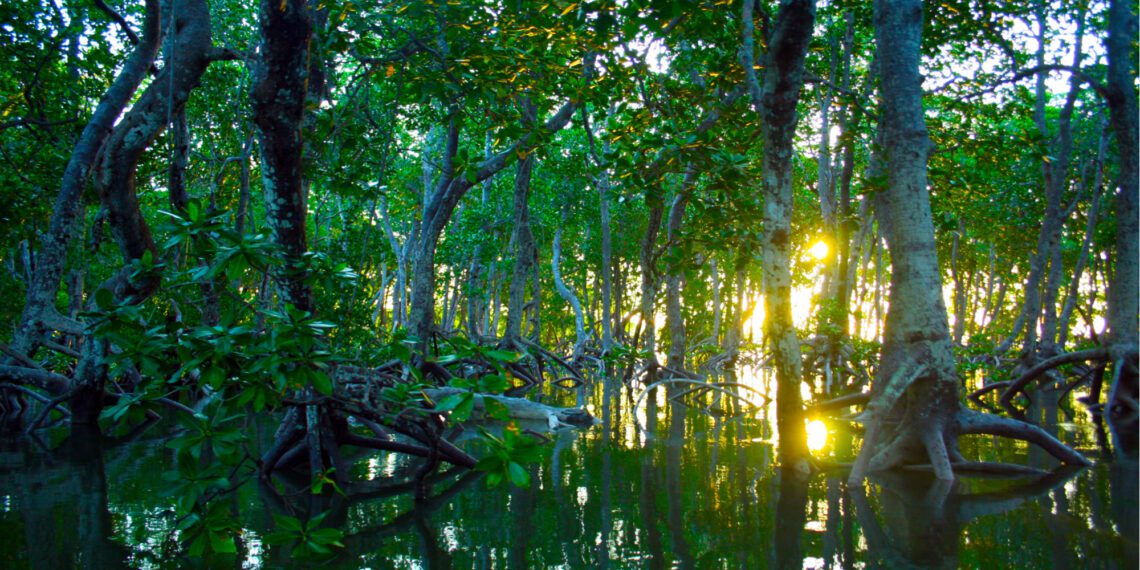Bacchus Capital, a prominent natural resources sector investment bank, has launched a major new initiative in Africa in conjunction with conservationists Space for Giants at the ongoing COP26 summit in Glasgow.
The initiative, named Green 14, aims to protect and restore key heritage landscapes across Africa through the creation of high-integrity carbon credits. Green 14 is a collaboration between leading conservationists and global capital providers which will enable African governments to benefit from the evolving carbon credits market.
One carbon credit is worth one metric tonne of carbon dioxide, or a greenhouse gas equivalent. They can be purchased by individuals, companies, organizations, or even countries, to balance the greenhouse gases they produce. In future, carbon credits are likely to be central to achieving carbon neutrality in the worldwide fight against the climate crisis.
Speaking last week to British newspaper The Independent, Bacchus Capital’s chairman, Peter Bacchus, said, “It [Green 14] is designed to be a fund that will focus on providing the basis for long-term conservation of heritage landscapes in Africa, and bring together some of the highest quality global capital providers together with the incredible expertise that sits within Space for Giants.”
Fighting on four fronts
By shifting carbon markets to the epicentre of the fight against carbon emissions, Bacchus Capital hopes that Green 14 will achieve four major objectives.
The first is to create sustainable measures that tackle climate change by acknowledging and restoring degraded ecosystems, combating deforestation, and maintaining the long-term reduction of carbon dioxide from the atmosphere. The second is to confront the illegal wildlife trade, which could reduce the likelihood of a second pandemic.
The third is to protect crucial habitats of many species of animals. Finally, the fourth is to address global poverty by creating employment opportunities and initiatives to enhance the quality of life and economic development in impoverished regions.
Speaking to attendees at a high-level COP26 side-event last week organized by Space for Giants, Kenya’s president, Uhuru Kenyatta, said, “Our savannahs, mangroves and swamps, our coral reefs and our marine reserves, are the carbon sinks of the world. They are the basis of the very oxygen that we breathe every day.
“Yet that great public benefit that the African ecosystem provides to the world has not yet been fully acknowledged. And it is neither sufficiently protected and we have certainly not been compensated for it.
“If these companies and countries were to move towards becoming carbon neutral, they need viable, high-quality carbon credits to offset their residual emissions.”
‘Transformational for conservation’
Bacchus Capital has accumulated a wealth of knowledge and expertise around strategic natural resources, particularly those supporting green energy.
The bank believes the process of initiating such monumental conservation efforts relies on a powerful combination of high-quality investors and conservation expertise to support African governments in implementing conscious policies and frameworks.
Mr Bacchus deems the prospect of pricing carbon through offsets to be transformational for conservation: “It starts the journey of beginning to recognize heritage landscapes more specifically for the benefits they provide both to the environment but also for the economic activity that they support through sequestration, which is essentially the sea change that we’re seeing through the development of carbon markets.
“The carbon credit market provides, for the first time, a framework enabling global conservation to move on from being a short-term-focused, hand-to-mouth cottage industry to an endeavour that can be systematically planned, strategically, over the long term.”












